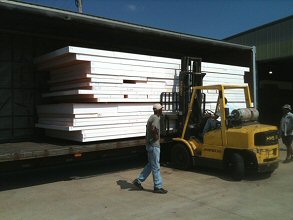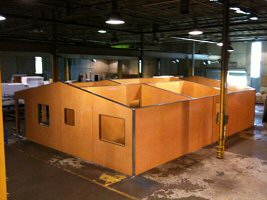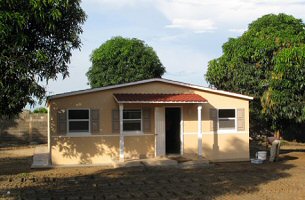|
|
Uses
The majority of our phenolic fiberglass laminates are used to manufacture structural insulated panels or SIPs. The laminate is used as the skin or facer and bonded to a core of various thicknesses to meet structural and R value needs. The basic cores used are EPS, urethane, balsa, and honeycomb made from paper, plastic, or metal. The resulting panels have a very high strength to weight ratio and can be engineered to meet most structural design loads.

Phenolic skins laminated to honeycomb cores when superior strength required
|
 |

|
Panels made with our composite phenolic laminates are often referred to as CSIP or FSIP standing for Composite Structural Insulated Panel or Fiberglass Structural Insulated Panel.
CSIPs have distinct advantages over traditional OSB wood faced SIPs.
- Will not ignite (phenolic has 1/20th the flammability of wood and fiberglass is fireproof)
- Dimensionally stable (won’t shrink or swell)
- Provides no food source for mold growth
- Up to ½ the weight of an OSB panel
- Waterproof, will not rot
- Not attacked by insects (especially termites)
- Ideal for use in moist/wet climates
- Are available in lengths exceeding 24 feet (the maximum available in an OSB panel)
- Lower finishing costs
Composite houses and the composite housing market is growing rapidly. Severe weather, moisture, and insects do not degrade homes made from composites. The long life cycle that composites afford means the initial costs are spread over a longer period of time and the reduced maintenance is an added benefit.
  
|
|

